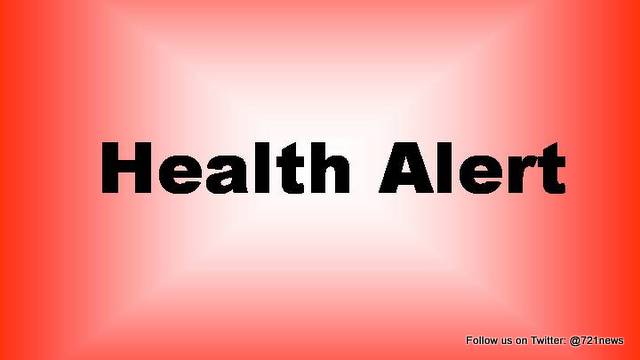GREAT BAY, Sint Maarten (DCOMM) – Consuming a healthy diet throughout the life course helps prevent malnutrition in all its forms as well as a range of non-communicable diseases and conditions, according to the World Health Organization (WHO).
But the increased production of processed food, rapid urbanization and changing lifestyles have led to a shift in dietary patterns. People are now consuming more foods high in energy, fats, free sugars or salt/sodium, and many do not eat enough fruit, vegetables and dietary fiber such as whole grains, the WHO reports.
The exact make-up of a diversified, balanced and healthy diet will vary depending on individual needs (e.g. age, gender, lifestyle, degree of physical activity), cultural context, locally available foods and dietary customs. But basic principles of what constitute a healthy diet remain the same concludes the WHO.
Every year Collective Prevention Services (CPS), a department within the Ministry of Public Health, Social Development and Labour (Ministry VSA), as part of its annual calendar of observances, highlights and creates awareness about health matters. For January, a healthy weight and nutrition is the topic, and appeals to the community to take note of consuming a healthy diet in 2017.
A healthy diet helps protect against malnutrition in all its forms, as well as non-communicable diseases (NCDs), including diabetes, heart disease, stroke and cancer.
Unhealthy diet and lack of physical activity are leading global risks to health. Healthy dietary practices start early in life – breastfeeding fosters healthy growth and improves cognitive development, and may have longer-term health benefits, like reducing the risk of becoming overweight or obese and developing NCDs later in life.
Energy intake (calories) should be in balance with energy expenditure. WHO evidence indicates that total fat should not exceed 30% of total energy intake to avoid unhealthy weight gain, with a shift in fat consumption away from saturated fats to unsaturated fats, and towards the elimination of industrial trans fats.
A healthy diet contains: Fruits, vegetables, legumes (e.g. lentils, beans), nuts and whole grains (e.g. unprocessed maize, millet, oats, wheat, brown rice); At least 400 g (five portions) of fruits and vegetables a day. Potatoes, sweet potatoes, cassava and other starchy roots are not classified as fruits or vegetables.
A healthy diet contains less than 10% of total energy intake from free sugars which is equivalent to 50 g (or around 12 level teaspoons) for a person of healthy body weight consuming approximately 2000 calories per day, but ideally less than 5% of total energy intake for additional health benefits.
Some other healthy tips are, unsaturated fats (e.g. found in fish, avocado, nuts, sunflower, canola and olive oils) are preferable to saturated fats (e.g. found in fatty meat, butter, palm and coconut oil, cream, cheese, ghee and lard); Industrial trans fats (found in processed food, fast food, snack food, fried food, frozen pizza, pies, cookies, margarines and spreads) are not part of a healthy diet; Use less than 5 g of salt (equivalent to approximately 1 teaspoon) per day and use iodized salt.
These are healthy diet tips that you can use on a daily basis for 2017.





























